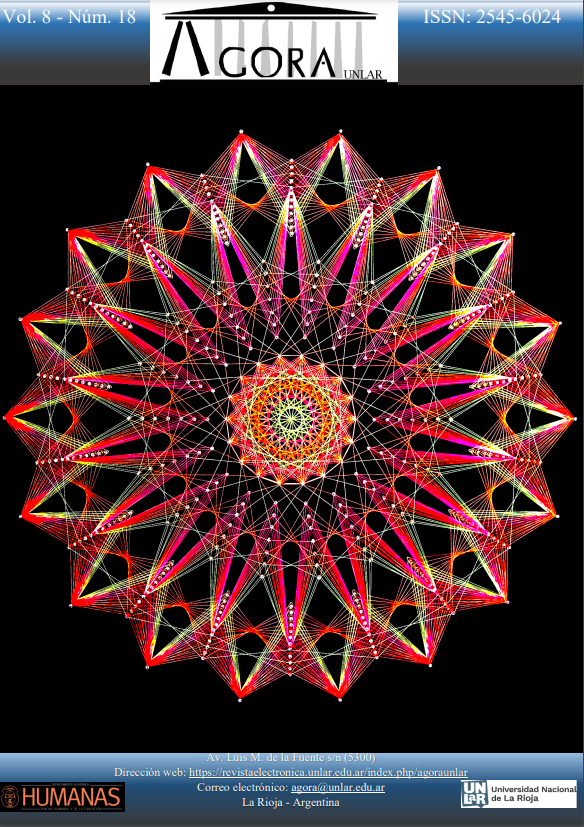Sobre la riqueza y el valor en Isidoro de Sevilla (S. VI-VII)
Keywords:
catolicismo, discurso, Edad Media, Historia Medieval, riquezaAbstract
La construcción discursiva eclesiástica altomedieval de los siglos VI y VII estuvo, por lo general, ligada a ciertos conceptos que tenían como objetivo encauzar la vida del creyente hacia el “recto camino” para la salvación eterna. Dicha construcción, se enmarcó dentro de las cualidades y características del denominado “Plan divino”, esbozando así, un intento de “performar” al receptor. Fueron los distintos Padres de la Iglesia los encargados de esa labor discursiva, presentes en sus escritos a través de las diversas reglas, preceptos y ordenamientos. Isidoro, como arzobispo sevillano, no estuvo exento de esta labor. Fiel seguidor de San Agustín y heredero de la tradición greco-romana, el sevillano construyó nociones que se impregnaron en la realidad discursiva de su tiempo, donde el valor y la riqueza eran entendidas en un sentido espiritual, contrariamente a la riqueza material, símbolo de una vida mundana, pecaminosa y opulenta. Es por ello, que esta aproximación inicial busca precisar y analizar las implicancias performativas de los conceptos mencionados, tomando como fuentes principales, pero no exclusivas, las Sentencias y las Etimologías. About wealth and value in Isidore of Seville (S. VI-VII)AbstractThe early medieval ecclesiastical discursive construction of the 6th and 7th centuries was, in general, linked to certain concepts whose objective was to guide the life of the believer towards the "straight path" for eternal salvation. Said construction was framed within the qualities and characteristics of the so-called "Divine Plan", thus outlining an attempt to "perform" the receiver. The different Fathers of the Church were in charge of this discursive work, present in their writings through the various rules, precepts and regulations. Isidoro, as the Sevillian archbishop, was not exempt from this task. A faithful follower of Saint Augustine and heir to the Greco-Roman tradition, the Sevillian built notions that permeated the discursive reality of his time, where value and wealth were understood in a spiritual sense, contrary to material wealth, a symbol of a worldly, sinful and opulent life. That is why this initial approximation seeks to specify and analyze the performative implications of the aforementioned concepts, taking Sentences and Etymologies as main, but not exclusive, sources.Keywords: Catholicism, discourse, Middle Ages, Medieval History, wealthDownloads
Published
2023-05-31
Issue
Section
ARTÍCULOS DE INVESTIGACIÓN O REVISIÓN TEÓRICA





